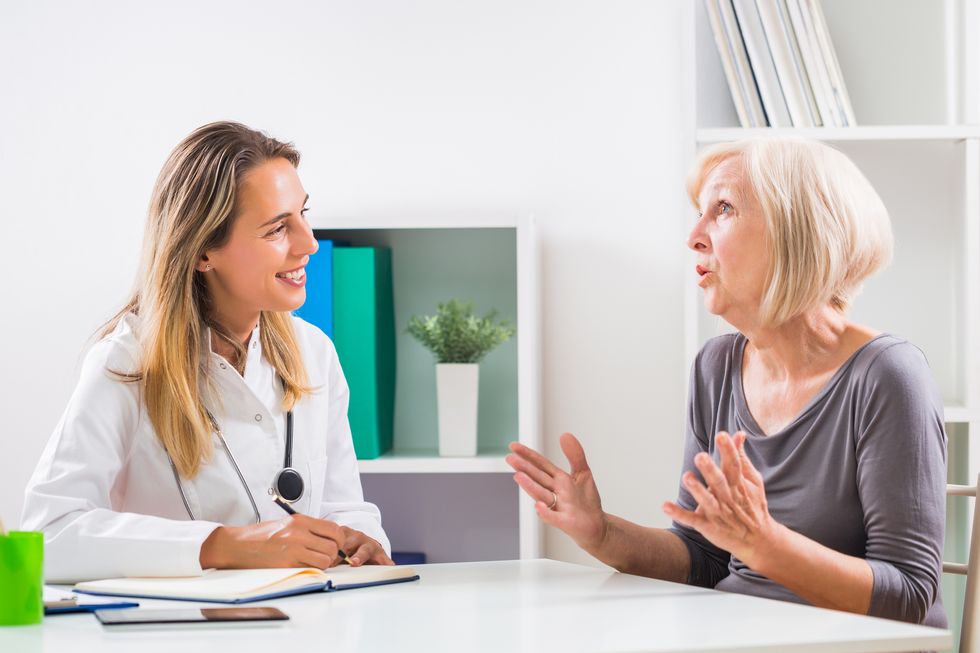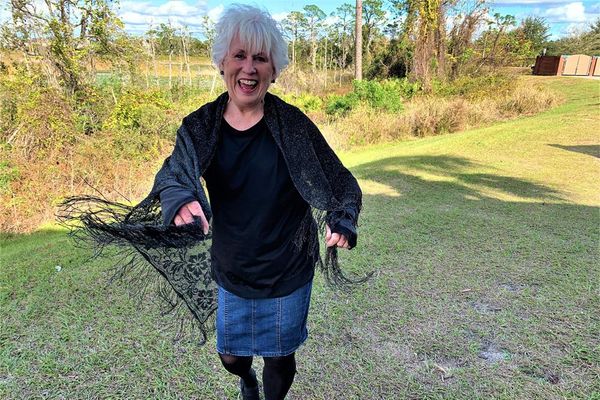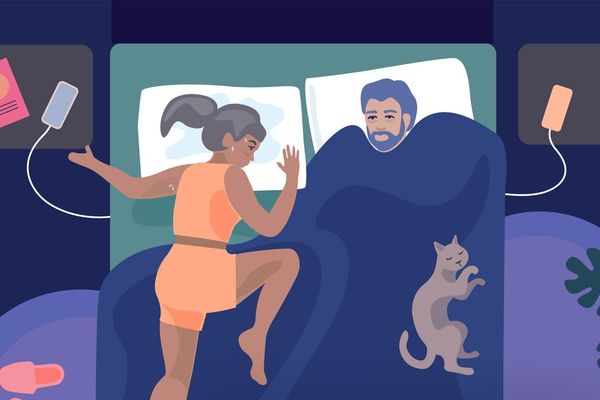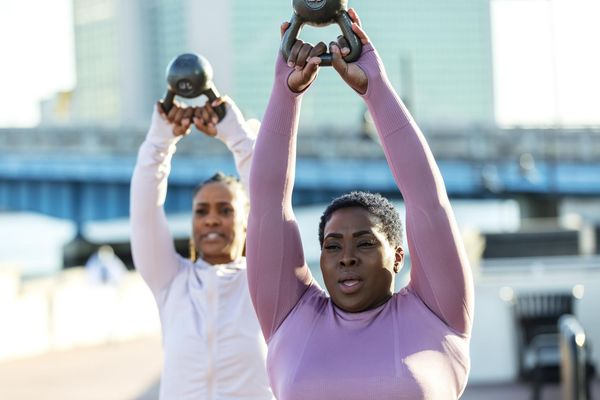Whether practicing as a nurse in women's health or leading HealthyWomen, I hear the same thing time and time again: Women do not believe their health concerns are being taken seriously by the very professionals dedicated to their care.
Too often women are told, "It's all in your head," or they're asked, "Could it be your time of the month?" or their concerns are pushed under the all-encompassing umbrella of "stress." These women tell me they feel unheard and even ignored, especially when it comes to some symptoms women have as we enter into perimenopause and menopause.
For younger women, a routine annual exam is just that: routine. Typical tests produce normal results. But as we age, women begin to experience a wide range of changes in their body that are notable for being here-today-gone-tomorrow. Most aren't cause for worry, but sometimes symptoms persist, leaving us to wonder, "Should I say something?"
And yet, knowing when to speak up isn't always easy. Many conditions have similar signs and symptoms—fatigue, nausea, insomnia, bloating, weight gain, and so on—making it difficult to sort through what's a pesky sign of aging and what might be serious. Couple that with a feeling of not being heard, and it's not surprising that so many women feel ignored.
To find out what's really happening in the exam room, HealthyWomen partnered with WebMD to survey more than 3,100 midlife women on their attitudes and behaviors related to healthy aging and, especially, menopause. Called Aging Smart, Aging Well, our comprehensive survey breaks out its findings by four key stages of midlife womanhood: premenopausal, perimenopausal, menopausal and postmenopausal to track how women's health care experiences change.
To that end, our survey reveals that nearly half the women we surveyed say they don't proactively discuss their health concerns with their provider, and the vast majority of us don't discuss the concerns that worry us the most: cancer (only 11 percent have spoken up about their concerns), dementia (3 percent), heart disease (18 percent) and stroke (9 percent).
And when it comes to mental health, midlife women say anxiety has the greatest impact on their quality of life, yet only 16 percent have brought it up with their health care provider.
Breaking out data by groups also surfaced important differences. Black women are more likely to say they speak up than women of other races and ethnicities. Age plays a role as well, with more younger women than postmenopausal women saying they feel that "aging is a natural process, and there's nothing you can do to stop it." You can read more about all our findings here.
Reading this survey, I am reminded that our mission at HealthyWomen is to empower women to ask the questions they need answered. To that end, here are a few key things to consider before your next well-woman visit:
A loss of estrogen does a lot more than stop menstruation. While women can be laser-focused on estrogen's impact on their monthly periods, the hormonal decline that leads up to menopause can be equally disruptive elsewhere in the body. For example, a loss of estrogen in the brain can lead to memory lapses, irritability or insomnia, while at the waistline a shortage can cause a spurt in fat deposits and the loss of your hour-glass shape. Estrogen levels can also affect your skin, causing it to become patchy and dry. Want to learn more about estrogen's role in your body? HealthyWomen can help.
Signs and symptoms of menopause can look a lot like a bad hair day. One of the most challenging aspects of menopause is that so many changes are happening at once. Although any single change may not warrant a trip to your health care provider, taken together they can push you to be unhappy, even depressed. Nothing about your body should be too off-putting or embarrassing to discuss with your health care provider, including your mental and sexual health. If you think you might need to talk to someone, likely you do.
Treat your body as your partner in healthy aging. As a midlife woman, now is the time to become more attuned to your body than ever before. While you may not recognize (or appreciate) the changes underway, it will soon become apparent how one day's lifestyle choice can influence how well you feel in the days to come.
The wisdom of menopause will serve you the rest of your life. Menopause is a time of enrichment when a woman comes to know her body intimately. What you learn about yourself will strengthen your ability to distinguish pesky annoyances of aging from something potentially more serious. Either way, there is no circumstance under which a woman should feel questions about her health will not be taken seriously by her practitioner.
If your current provider isn't listening to you, then it's time to find a new one who does.







